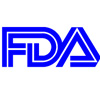 The U.S. Food and Drug Administration announced its preliminary determination that partially hydrogenated oils — the primary dietary source of artificial trans fat in processed foods — are not “generally recognized as safe” for use in food.
The U.S. Food and Drug Administration announced its preliminary determination that partially hydrogenated oils — the primary dietary source of artificial trans fat in processed foods — are not “generally recognized as safe” for use in food.
It wasn’t always so.
The agency has opened a 60-day comment period to collect data on the time needed for food manufacturers to reformulate products that contain artificial trans fat.
Here’s what we know.
- Eating trans fat raises low-density lipoprotein (LDL), or “bad” cholesterol, increasing the risk of coronary heart disease.
- According to the independent Institute of Medicine (IOM)…
- Trans fat provides no health benefit.
- There is no safe level of consumption of artificial trans fat.
- Accordingly, consumption of trans fat should be as low as possible.
The bottom line?
New York City’s Mayor Bloomberg made trans fats illegal in processed and restaurant foods 7 years ago.
Since trans fat content information began appearing in the Nutrition Facts label of foods in 2006, trans fat intake among American consumers has declined from 4.6 grams per day in 2003 to about 1 gram per day in 2012.
This is just one more example of the imprecise nature of dietary science. Read this story on how trans fats (Crisco) were, at one time, considered a selling point over rivals, beef fat and butter.
11/8/13 8:48 JR